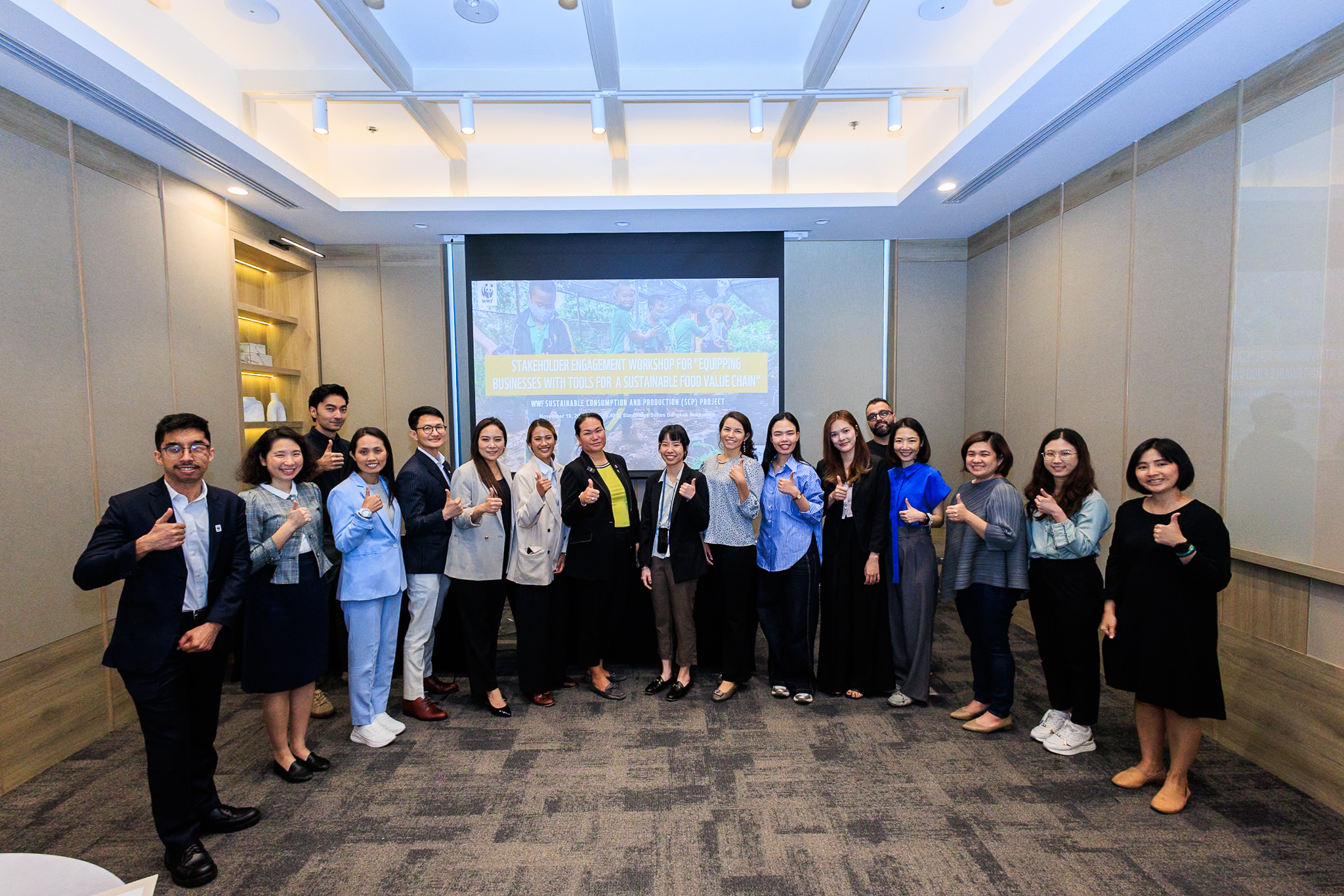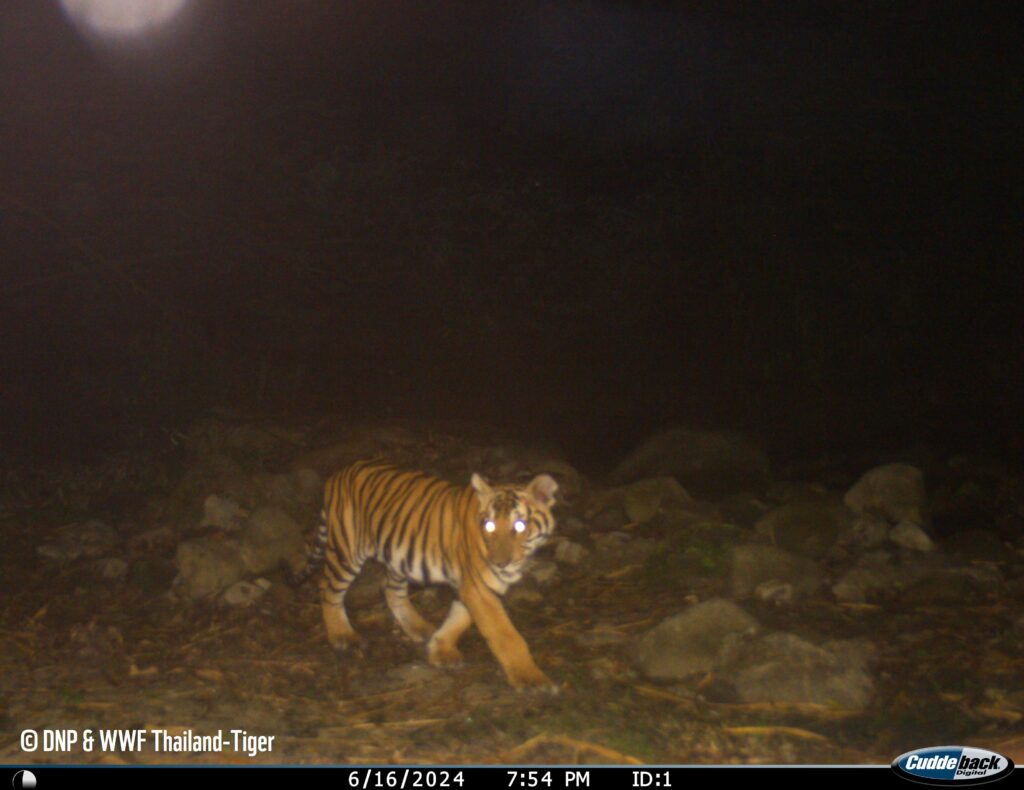The ongoing IKI SCP Asia Phase II, Sustainable Food Consumption and Production project under WWF Thailand is funded by the International Climate Initiative (IKI) of the Federal Ministry for Environment, Nature Conservation and Nuclear Safety (Germany, BMUV). As part of this project, there is an initiative aimed at developing guidelines or tools as a form of capacity building for the business sector in Thailand, specifically for those working within the food sector. This includes, chain restaurant groups, food retailers, food delivery services, and hotel F&B. The purpose of this capacity building is so the target businesses develop the know how to introduce more sustainable practices to their business operations across their value chain. This is in order to facilitate the adoption of SCP principles by the private sector in Thailand. In the following 3 tools will be developed for this objective
- The Food Loss and Food Waste Reduction Guidelines for the Food Sector
- The Single-Use Packaging and Tableware Reduction Guidelines for the Food Sector
- The Low Carbon Transportation Guidelines for the Food Sector
As part of this initiative, 2 multi-stakeholder workshops were organised in September and November of 2024. The first workshop aimed at introducing attendees to the guidelines being developed as well as gaining feed back directly from those working within the industry. The feedback was considered a crucial step in the development process as it would ensure the guidelines are more usable and can be applicable to real world scenarios and businesses.
The second workshop in November focused on sharing the guidelines developed and a call to action for the businesses to use them where possible once the final versions are published in early 2025.
Both workshops were attended by a wide range of participants representing a range of companies across the food sector in Thailand. This includes major supermarkets and large-scale food delivery services to F&B and sustainability departments of hotels. Many major brands who are key players in the Thai food sector were represented and expressed interest in the tools being developed.
The tools were developed by Dr. Sirasa Kantaratanakul of Rao United who are over 15 years of experience working on various projects related to SCP. Dr. Sirasa conducted an indepth literature review of existing guidelines and research in order to develop the comprehensive final set of tools which WWF Thailand will release.
The first workshop organised on the 17th of September at the Crowne Plaza Lumpini Hotel in Bangkok was attended by 21 people from the targeted businesses. The workshop was facilitated by Dr. Sirasa. Representatives from BJC Big C, Central Group, and Lotus’s Supermarkets were all present. We did invite companies from the food delivery platforms, which is a targeted industry, but unfortunately for the first workshop, the major providers were unable to attend. Yindii a food delivery service provider who focuses on suitability and food waste reduction were however able to attend and gave invaluable feedback. Some of the feedback included the challenges the current iteration of the tools would have posed to their organisation if it were to be adopted based on their real-world experience. An example of this was present in the ‘checklist’ section of the tools, whereby many participants suggested we move the step ‘obtain management buy in’ to the first step. It is this kind of feedback, which were gained from those with direct experience that demonstrates the importance of this first workshop.


Workshop 2 organised in the 19th of November 2024 at the Staybridge Suites Bangkok Sukhumvit was also facilitated by Dr. Sirasa, and was also a success. While there were less participants from the business sector overall, at 15, all the key targeted industries were present. This included having a representative from one of Thailand’s 3 major food delivery service provides, Lineman Wongnai, in attendance. The results of the second workshop’s post evaluation survey indicated that a large majority of the participants from these major companies found the tools developed to be useful, and indicated a willingness to utilise them in their organistions, once the tools are finalised and published in early 2025. Taking on the comments from the first workshop, there are also plans in place to translate the tools into Thai later in 2025. Based on the evaluation survey, the tool which participants found most useful and are most likely to adopt is the food waste tool. The evaluation also found out some challenges, which could appear that may prevent the adoption of the tools by the businesses who attended that workshop. This included language barriers, which was raised since the first workshop and will be solved through the Thai version. Another challenge raised was the investment and budget that would be required to follow the steps mentioned in the guidelines.







